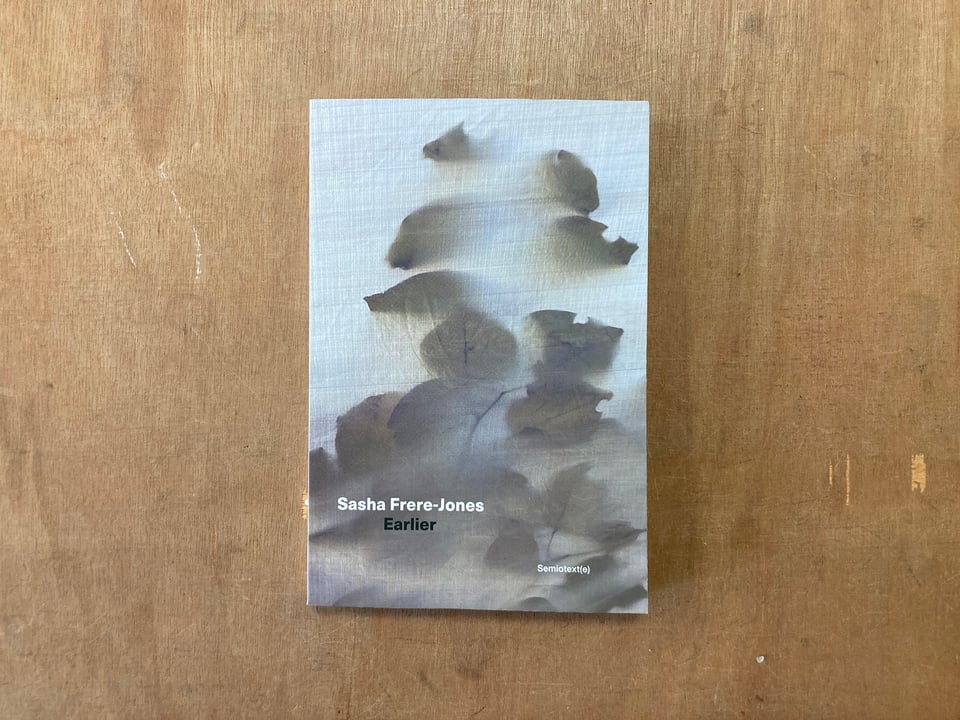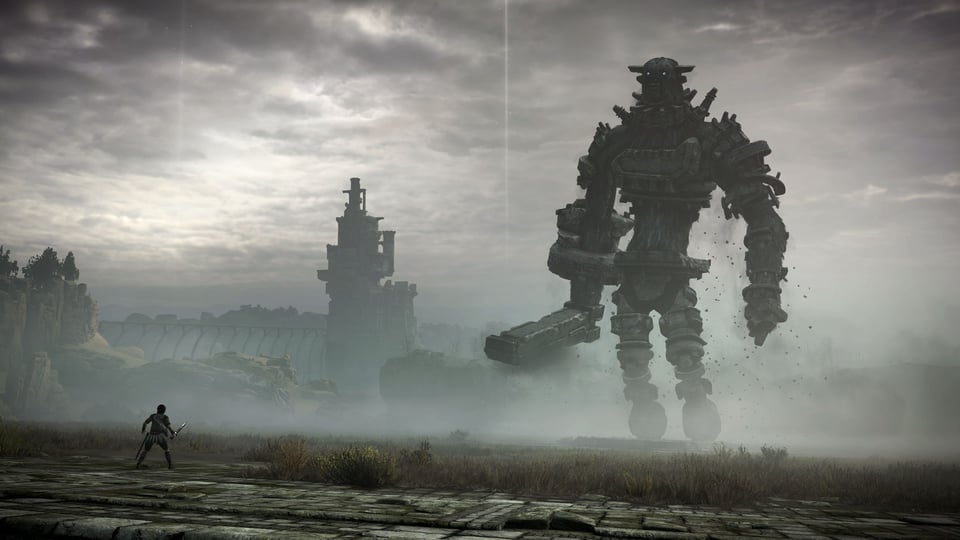lend me ur eyes 072
[ 27 / 01 / 24 ]
It can be hard to keep up. The other day DC asked about my migrating this newsletter from Tinyletter to another service, which I had said would be Substack. "Didn't you hear that they are supporting Neo-Nazis," he said, to which I replied saying I hadn't. But I was lying. I had, I just didn't want to look into what they had done and then spend more time looking for an alternative email delivery solution. I later saw that Sasha Frere-Jones, the author of a book mentioned below, was using a fun-sounding service for all his emailing needs, and so this newsletter has landed there, arriving to you now via Buttondown. I love weird little web tools made by weird little men who send you marketing emails signed with their name (see: Ivan @ Notion, David @ Blot) and Buttondown seems like one of those. I registered a few days ago and Justin from Buttondown has emailed me about ten times already, including once to announce that, having conducted a "manual audit," he had confirmed I wasn't a spambot. I installed arc browser some time ago, and they sent me so many daily emails that when they sent one soliciting feedback I replied telling them that the product was absolutely fine and that my main feedback was for them to send me less emails about it. I like emailing people a lot. It anchors me to existence and makes me feel like I'm doing something even when I am not. I'm Tom Hanks on the hermit island with the beach ball, but I've got a computer and an internet connection instead. I don't need to leave the island because I can periodically email you to let you know that I am alive. So far, Buttondown seems great, with a markdown editor that makes you feel focused and productive, and a barebones look that reminds me of an older internet, specifically of ghost.io which I used to run my website on but stopped for reasons I can no longer recollect. Maybe the Buttondown service fee, which is not at all large but equally not insignificant, will act as encouragement to write these things more regularly. So here we go. Hello to 2024, a year I currently have no grasp of and which I am patiently waiting for a sign from, indicating how it will unfold.
READING

I have read two memoirs so far this year. The memoir is a genre that previously I had dismissed if not ignored entirely, thinking of the sort of airport-bookstore, ghost-written, celeb-focused books rather than anything more everyday and diaristic. But really a memoir is just life-writing I suppose, and I like that. A memoir is like a long newsletter, made better by an editor's interventions, printed onto pages and bound together with glue. I like descriptions of moments. I like observations, and I like people's stories. I like those stories especially when they don't reveal anything particularly profound––when they are ordinary but true. Just as I like to look at people looking at paintings, or listen in on snippets of passing people's conversations, it is not surprising to learn that I like a good memoir too. The two that I read are somewhat similar, though this was not something I knew when sequencing them. From what I understand, the two authors are also friends. One is titled Stay True, written by Hsu Hua; the other is titled Earlier, written by Sasha Frere-Jones. It is not unexpected that I would like these two books. Both of the authors are middle-aged men known and well regarded for their culture writing. Both of their books weave gentle and moving memories of music, movies, art, work, life, writing, love, family, and friendship in between broader observations around grief, loss, and the passing of time. They are both simple books in a way, but remarkably well observed, satisfying in the way they refract some recognisable contours of everyday life back at you in a way that is both familiar but amplified. Deft also in the seriousness with which they treat art and culture and a lifelong commitment to its enjoyment. In both, music is a centrifugal force around which everything else vibrates and gravitates. Both books are very nostalgic, looking back on formative memories from a distance, reframing remembered experience into something more carefully crafted and eloquently presented. In Stay True, the narrative is linear. The book focuses on a fixed period (college) and follows a story from the author's life in sequence, leading up to the shocking loss of a close friend that, despite being signalled from the start, still hits very hard when it enters the narrative. In Earlier, the story is entirely non-linear, and the loss (of a life partner) is not something that happens at a fixed and dramatic point but is instead weaved throughout, existing as much as detail as event, wobbling at the edges of everything and changing how it registers and sits. The book, which spans a period of thirty or so years, is presented in the form of short, scrapbook-like fragments that present microcosmic, seemingly unimportant moments, structured out of chronological order in a way that slowly builds a collective picture of a person and the personality that swells out from them through the various associations and connections that make up a life. The loss is not as centralised but it is still part and parcel of the story: it is something that has either happened, or is always coming. Both books are playful and clever. While the authors' insularity can border on navel-gazing and self-obsession, it is saved by always being tied back to someone else: both books are primarily about their respective authors but neither could really exist without the lost friend, or the lost lover, that has driven their creation. I liked the Hsu Hua memoir a little more, but was impressed by both, particular the way that while they must have been squeezed out with no small amount of pain and suffering, they are still so real, funny, engaging, and easy to read. These are the sort of books that, if you have ever written anything, make you wish you hadn't while also simultaneously making you want to keep trying to see if you could ever get somewhere near writing something that reads as effortless-seeming as this.
PLAYING

I have been continuing to play the classics, because it seems the classics are classics for a reason. Having worked through Shadow of the Colossus (2005) during early January, I've now moved on to The Legend of Zelda: Ocarina of Time (1998), opting, in both cases, for the mildly remade, slightly polished and optimised versions. Both games are fantastic, emblematic of the era in which they were made but also timeless in a way that not all games––being so bound to the constantly shifting tides of technology––can be. Neither game needs much introduction, nor is there anything particularly original to say about either. What I will say is that Shadow of the Colossus is completely justified in its reputation as the most Criterion Collection-ey of games, for better and for worse. It is a game so earnestly art-leaning that it does sometimes feels a little like its reaching for importance*.* That said, it is tremendously well made and beautiful. It is also unlike little else in video games created then or now, as equally bold in its deconstruction of what games are as it is in its reinvention of what they can be. I am not sure what the consensus opinion is, but I found that I liked Ico a little more, partly because its minimalism felt more natural and less manufactured. Something about it felt more organic and real. Regarding Ocarina of Time, it is strange to now play a game that previously I had only watched others play, having directed older friends on where to go, and what to try, and how to fight this or that monster. Playing it now as an adult is a strange and nostalgic experience, especially given the game's themes of lost youth and innocence. I am surprised by how much of it I remembered.